#m: son of the century
Explore tagged Tumblr posts
Text
M: Son Of The Century Director Joe Wright: Now, we don't expect many americans to watch our show. They usually aren't interested in non-english-language European productions...
Luca Marinelli: [nodding sagely, in agreement]
Joe Wright: ... but on the off-chance that a stray american does accidentally watch our series, how can we make *absolutely sure*, like 100% certain, that it's crystal-bloody-clear to them what it really is about? Just in case they missed all previous cues.
Luca Marinelli: Say no more, I got you covered!
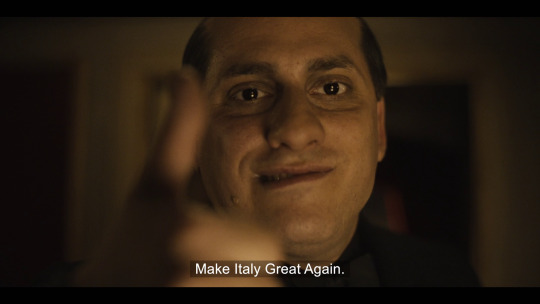
#m son of the century#m il figlio del secolo#son of the century#il figlio del secolo#luca marinelli#we were hollering and howling at this#the most unsubtle show ever created#also a masterpiece
43 notes
·
View notes
Text

I think Redson would be a V-neck kinda guy(?), yea... He wont recall a thing when he wakes up the next morning LOL, not until someone reminds him ofc 😴⚒ He knows the inner workings of machineries by heart 💪
Did a Part 2! :DDstac
#lego monkie kid#lmk#lmk fanart#lmk red son#lmk mei#2025#heeheeheee#I NEED MORE OF REDSON BEING A MACHINE/TECH GENIUS#HES BEEN DOING THIS FOR CENTURIES (i believe/assume/hc)#GIMME FANART OF HIM LAYING EXHAUSTED ON THE GROUND#all sorts of drafts and blueprints scattered on the floor#NO#He's buried beneath his pile of drafts argh#Fine#Maybe ill do it myself 😤#stackalayers
895 notes
·
View notes
Text
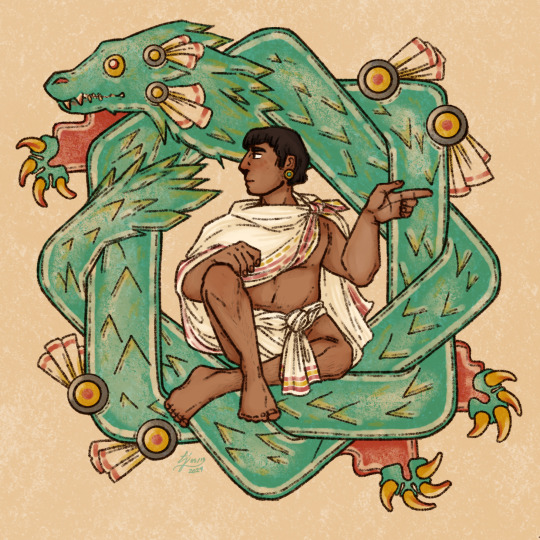
c. 1540 CE: a young man from Chalco, and his dragon.
#em draws stuff#em is posting about temeraire#temeraire#temeraire worldbuilding collection#⚬⚬��⚬⚬𐂂#<- tag for organizing when I'm drawing stuff that is temeraireVerse but not in the line of the plot of the books themselves#for school reasons I have been reading a lot about 14th-17th century mesoamerica#and thus am Interested in how that would have potentially played out in temeraireverse...#anyway! not sure if I'll draw these two again but I Have given the lad a day sign name (five deer) so I could Potentially. who can say.#haven't come up with a name for the dragon yet... maybe cipachcoatzin would work if can't think of anything else#<- Please Forgive My Dubious Command of Classical Nahuatl Grammar I Am But A Student#on that note zoomorphic interlace is not very much a style from this period/region but it helps me with composition things#five deer himself is mostly based on the illustration of the tlacuilo's son in the codex mendoza#the dragon is drawn more from a fusion of older scribal styles (ie. the codex borgia) and my own shorthands for dragon anatomy
1K notes
·
View notes
Text

Sorcière devant son grimoire (A Witch Reading Her Grimoire)
after Félicien Rops (1833–1898)
from Eduard Fuchs’ “Illustrierte Sittengeschichte vom Mittelalter bis zur Gegenwart”, 1909
#félicien rops#sorcière devant son grimoire#a witch reading her grimoire#19th century art#decadent movement#decadence#witch#witchcraft#occult#horror art#dark art#art#illustration#etching
375 notes
·
View notes
Text

'The Athenide brings Asclepius for a visit to Atlantis'.
Despite her fervent attempts to prevent favoritism amidst her demigod wards, the ebony Athenide's closeness to Asclepius was undeniable both to mortal and divine sight. Whilst this fondness is often attributed to the fact she carried and birthed him, many poets insisted that it was because he represented the child Ophelia wanted to have with Phoebus as Asclepius grew to embody the best qualities of Perse and Apollo respectively. During her pregnancy, Poseidon blessed the baby to survive beneath his kingdom. A wise decision considering Asclepius' premature labor which would lead to the first cesarean procedure. A lesser child would have lorded this privilege over his peers but apparently the young demigod was only recorded to have used it when he missed his adopted mother too fiercely and dived underneath the waves to find her, to the point Chiron would watch him closely during the winter months Perse spent on Atlantis. Here we see mother and son in autumn, most likely about to teach him a safer way to her father's palace to lessen worries. A look of exasperated fondness is held in the goddess whilst the child has only open adoration, content in the arms of his mother.
Real painting name is 'To Ford' by William-Adolphe Bouguereau
#william bouguereau#academicism#19th century art#athenide art#athenide au#perse athenide#mother and son
223 notes
·
View notes
Text
PLEASE take a few seconds to read this. I need to talk about it at least here, or I swear steam will start coming out of my ears.
For weeks now, Luca Marinelli has been surrounded, humiliated, and mocked by a large portion of Italians (spoiler: fascists, but without saying it) just because, in some interviews (interviews he HAD to do—it’s not like he volunteered—purely to promote his new high-profile project M, The Son of the Century on SKY TV), he stated that he is antifascist, that his grandmother and entire family were too, and that it was difficult for him to take on Mussolini’s appearance and portray him.
The series is outstanding, making it untouchable from a production standpoint (JOE WRIGHT is the director! The same director of Pride & Prejudice and Atonement with McAvoy).
So what did this disgusting Italian ignorance do? Of course, it could ONLY latch onto Marinelli’s words.
Words that should be completely normal in a democratic government, right? An Italian actor says it was challenging to portray a historical figure who was atrocious and horrible for Italian families themselves.
And yet… no. They attacked him, mocked him. From then until now (to the point that he was interviewed again, and he admitted that yes, of course, it hurt him because he was speaking genuinely about himself). And now that a second season is confirmed, they’re mocking him even more.
But what exactly are they saying? Well, the usual ignorance:
That he took the MONEY, so he should shut up. (He worked. Obviously, he got paid. He worked for a production team and even said he was thrilled to collaborate with them. But he still despises the historical figure he portrayed.)
That he's a nobody. (Sure, he’s not super famous outside of Italy. But in Italy, he’s REALLY well-known. He’s one of the few Italian actors who has worked with Charlize Theron, starred in an American series, won at the Venice Film Festival, worked with foreign directors, acted in LGBTQ+ projects, and performed in English, Italian, and German.)
That he should shut up (again) because other famous actors have played bad characters and stayed silent. (Completely false. Leonardo DiCaprio and even Evan Peters—who played Dahmer—have both said it wasn’t easy to portray a real-life serial killer. Plus, we’re talking about Marinelli, an Italian actor playing an Italian dictator from the 1900s, not Caesar. This is recent history, and it still carries deep wounds in our country. You can’t compare it to an "American actor" playing a fictional villain or even a real historical figure from another country—someone who didn’t harm their homeland or cause them personal pain or shame.)
That he only said it to get attention and his moment of fame. (FALSE. GUYS, GUYS, GUUUYS… we’re talking about Luca Marinelli, who DOESN’T have social media, whose private life is completely unknown, who is genuinely shy outside of acting, and who has never been involved in any gossip.)
All of this disgusts and saddens me… The only thing I’m "happy" about is that at least The Old Guard 2 is happening.
#luca marinelli#m the son of the century#the old guard#the old guard 2#immortal husbands#m il figlio del secolo#tog#nicky di genova#talk tag#text post
375 notes
·
View notes
Text
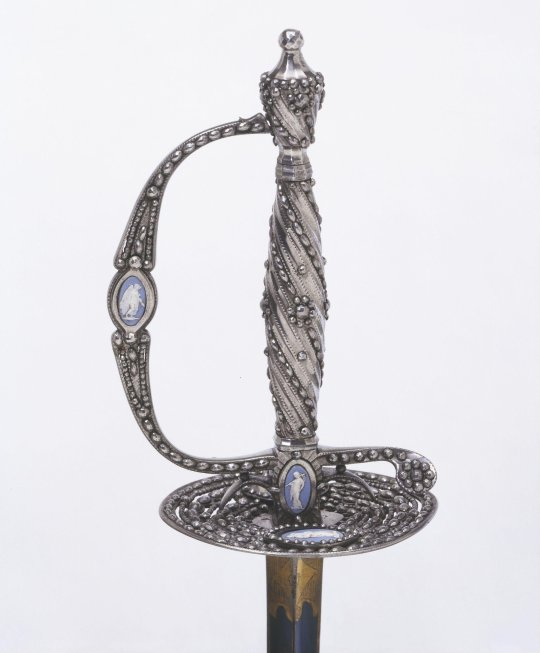
Dress sword, circa 1790, set with plaques made by Josiah Wedgwood and Sons
From the Victoria & Albert Museum
1K notes
·
View notes
Text
HBO's Continued Insistence on Dumbing Down Westerosi Politics
So there have been countless thinkpieces already on how GOT simplified the feudalist politics of Westeros (by giving a lowborn sellsword lordship over The Reach, by having no consequences for destroying the Sept of Baelor, etc.), but I haven't seen a lot of people talking about that for House of the Dragon.
The worst being that the show presupposes that Rhaenyra is the lawful heir when the books showed there are plenty of lawful arguments why she wouldn't be.
Mind you that I've been enjoying the show a lot so far. This is just to vent out my frustration with the writers' failure to fully engage with the values and protocols of the Middle Age-inspired setting. The show seems uninterested in laws of the Realm in a story ostensibly about politics, save for when they're using it as an excuse to amplify depictions of sex and violence.
Blacks vs Greens wasn't a matter of misunderstanding of who each side thought Viserys wanted on the throne. It was the Targaryens' belief of their absolute authority clashing with the Realm's established traditions. Everyone always knew who Viserys chose as heir. In Fire and Blood, Grand Maester Orwyle said as much when he was parleying with Rhaenyra on behalf of the Greens.
Rhaenyra heard his terms in stony silence, then asked Orwyle if he remembered her father, King Viserys. "Of course, Your Grace," the maester answered. "Perhaps you can tell us who he named as his heir and successor," the queen said, her crown upon her head. "You, Your Grace," Orwyle replied. And Rhaenyra nodded and said, "With your own tongue you admit I am your lawful queen. Why do you serve my half-brother, the pretender?" Munkun tells us that Orwyle gave a long and erudite reply, citing the Andal law and the Great Council of 101. Mushroom claims he stammered and voided his bladder. Whichever is true, his answer did not satisfy Princess Rhaenyra.
(For non-F&B readers: Munkun is the Grand Maester who served Aegon III, the king who came after this civil war. Munkun's book, The Dance of the Dragons, A True Telling, is one of Fire and Blood's source texts. Mushroom is the King Landing court jester from Viserys I to Aegon III's reign. One is a source written with academic rigor but is secondhand at best. The other is a firsthand eyewitness account but is from a literal fool who will take every chance to make things more scandalous and sexual to please the crowd.)
In House of the Dragon, they replaced Orwyle with Otto and Orwyle's discussion of legal precedent with Otto handing Rhaenyra a book page from Alicent. It's quite evident here that the writers, much like Mushroom, thought a discussion on the actual laws of the Realm were negligible in this story about a succession war.
Even Alicent made no pretense that Viserys chose Rhaenyra over her children and I have no idea why the HBO writers decided to make her mistakenly think otherwise. Maybe they thought a queen regent pushing her son to take the throne over another woman made her appear unsympathetic as a character, but if anything, this only makes show!Alicent less politically savvy and more delusional than her book counterpart, fully believing an addled king's vague muttering on his deathbed was sufficient grounds to change heirs last minute.
Book!Alicent following Andal laws instead of her husband's wishes makes sense given her Andal upbringing, her devotion to the Faith of the Seven which enforces said laws, and her desire to protect her children from Rhaenyra given that Rhaenyra has shown she's not above murdering family (see: Laenor).
In the books, there was a long discussion between the former king's council on who should succeed Viserys.
Here are the arguments for Rhaenyra:
Rhaenyra was older than her brothers and had more Targaryen blood
the late king had chosen her as his successor, that he had repeatedly refused to alter the succession despite the pleadings of Queen Alicent and her greens
hundreds of lords and landed knights had done obeisance to the princess in 105 AC, and sworn solemn oaths to defend her rights.
Here are the arguments for Aegon II:
many of the lords who had sworn to defend the succession of Princess Rhaenyra were long dead [...]
Ironrod, the master of laws, cited the Great Council of 101 and the Old King’s choice of Baelon rather than Rhaenys in 92
the hallowed Andal tradition wherein the rights of a trueborn son always came before the rights of a mere daughter
Ser Otto reminded them that Rhaenyra’s husband was none other than Prince Daemon, and “we all know that one’s nature. Make no mistake, should Rhaenyra ever sit the Iron Throne, it will be Lord Flea Bottom who rules us, a king consort as cruel and unforgiving as Maegor ever was [...]”
Should the princess reign [...] Jacaerys Velaryon would rule after her. “Seven save this realm if we seat a bastard on the Iron Throne.”
Once again, the show chose to cut out this long political discussion. Instead, the council had already made up their mind and decided to stage a coup (when in their perspectives from the books, it would definitely not be a coup).
For all their marketing how two sides are equally grey, HotD is actively delegitimizing Aegon II. The strongest argument for him is how his claim follows the laws of the Realm, but the show doesn't seem to care about the laws of the Realm or the political need to maintain a more predictable/tested transfer of power.
Instead, the show focuses on Viserys's relationship with his daughter and the mysticism of the Targaryen bloodline. In doing so, they emphasize Rhaenyra's strongest arguments for succession — that she's more of a Targaryen than her half-brother and that her father prefered her.
And what for? Because in our modern-day, we don't have male-prefered inheritance and people can only imagine misogyny as the only injustice here? What about the injustice of a monarch exercising absolute control, thinking that his "superior" heritage makes him above the established laws of the native people?
This is not to say Aegon II is unquestionably the heir. But this is to say that the show removed the political nuance of why people are questioning in the first place. Precedence isn't the end-all-be-all of succession, but neither is "because daddy said so".
#hotd critical#hotd#house of the dragon#Fire and blood#A song of ice and fire#asoiaf#Long post#this doesn't mean I think the writers are Team Black#I just think the writers can't shake off their 21st century values enough to portray the Greens as an equally valid side#They're too girlboss-pilled#Imagine that Queen Nymeria page scene where Rhaenyra asks Otto why he defies the orders of his late king#Otto: The laws of the Realm decree that the crown pass to the king's eldest trueborn son#Rhaenyra: The laws of the Realm? The king's word is law and it is within his power to overturn these unjust traditions#Otto: The king's will is only one of many. The crown's power is derived from the support of its people. Jaehaerys the Conciliator himself—#Rhaenyra: Perhaps the people have forgotten that my forebears did not forge the Iron Throne with “support” but with fire and blood.#There you've shown why this civil war happened and why people fall on either side
702 notes
·
View notes
Text






Luca Marinelli At The Press Conference For "M. Son Of The Century", 2025
#nicolo di genova#yusuf al kaysani#nicky#joe#yusuf x nicolo#joe x nicky#luca marinelli#marwan kenzari#the old guard#M. Son Of The Century
222 notes
·
View notes
Text
A central element of the myth of [Eleanor of Aquitaine] is that of her exceptionalism. Historians and Eleanor biographers have tended to take literally Richard of Devizes’s conventional panegyric of her as ‘an incomparable woman’. She is assumed to be a woman out of her time. […] Amazement at Eleanor’s power and independence is born from a presentism that assumes generally that the Middle Ages were a backward age, and specifically that medieval women were all downtrodden and marginalized. Eleanor’s career can, from such a perspective, only be explained by assuming that she was an exception who rose by sheer force of personality above the restrictions placed upon twelfth-century women.
— Michael R. Evans, Inventing Eleanor: The Medieval and Post-Medieval Image of Eleanor of Aquitaine
The idea of Eleanor’s exceptionalism rests on an assumption that women of her age were powerless. On the contrary, in Western Europe before the twelfth century there were ‘no really effective barriers to the capacity of women to exercise power; they appear as military leaders, judges, castellans, controllers of property’. […] In an important article published in 1992, Jane Martindale sought to locate Eleanor in context, stripping away much of the conjecture that had grown up around her, and returning to primary sources, including her charters. Martindale also demonstrated how Eleanor was not out of the ordinary for a twelfth-century queen either in the extent of her power or in the criticisms levelled against her.
If we look at Eleanor’s predecessors as Anglo-Norman queens of England, we find many examples of women wielding political power. Matilda of Flanders (wife of William the Conqueror) acted as regent in Normandy during his frequent absences in England following the Conquest, and [the first wife of Henry I, Matilda of Scotland, played some role in governing England during her husband's absences], while during the civil war of Stephen’s reign Matilda of Boulogne led the fight for a time on behalf of her royal husband, who had been captured by the forces of the empress. And if we wish to seek a rebel woman, we need look no further than Juliana, illegitimate daughter of Henry I, who attempted to assassinate him with a crossbow, or Adèle of Champagne, the third wife of Louis VII, who ‘[a]t the moment when Henry II held Eleanor of Aquitaine in jail for her revolt … led a revolt with her brothers against her son, Philip II'.
Eleanor is, therefore, less the exception than the rule – albeit an extreme example of that rule. This can be illustrated by comparing her with a twelfth century woman who has attracted less literary and historical attention. Adela of Blois died in 1137, the year of Eleanor’s marriage to Louis VII. […] The chronicle and charter evidence reveals Adela to have ‘legitimately exercised the powers of comital lordship’ in the domains of Blois-Champagne, both in consort with her husband and alone during his absence on crusade and after his death. […] There was, however, nothing atypical about the nature of Adela’s power. In the words of her biographer Kimberley LoPrete, ‘while the extent of Adela’s powers and the political impact of her actions were exceptional for a woman of her day (and indeed for most men), the sources of her powers and the activities she engaged in were not fundamentally different from those of other women of lordly rank’. These words could equally apply to Eleanor; the extent of her power, as heiress to the richest lordship in France, wife of two kings and mother of two or three more, was remarkable, but the nature of her power was not exceptional. Other noble or royal women governed, arranged marriages and alliances, and were patrons of the church. Eleanor represents one end of a continuum, not an isolated outlier.
#It had to be said!#eleanor of aquitaine#historicwomendaily#angevins#my post#12th century#gender tag#adela of blois#I think Eleanor's prominent role as dowager queen during her sons' reigns may have contributed to her image of exceptionalism#Especially since she ended up overshadowing both her sons' wives (Berengaria of Navarre and Isabella of Angouleme)#But once again if we examine Eleanor in the context of her predecessors and contemporaries there was nothing exceptional about her role#Anglo-Saxon consorts before the Norman Conquest (Eadgifu; Aelfthryth; Emma of Normandy) were very prominent during their sons' reigns#Post-Norman queens were initially never kings' mothers because of the circumstances (Matilda of Flanders; Edith-Matilda; and#Matilda of Boulogne all predeceased their husbands; Adeliza of Louvain never had any royal children)#But Eleanor's mother-in-law Empress Matilda was very powerful and acted as regent of Normandy during Henry I's reign#Which was a particularly important precedent because Matilda's son - like Eleanor's sons after him - was an *adult* when he became King.#and in France Louis VII's mother Adelaide of Maurienne was certainly very powerful and prominent during Eleanor's own queenship#Eleanor's daughter Joan's mother-in-law Margaret of Navarre had also been a very powerful regent of Sicily#(etc etc)#So yeah - in itself I don't think Eleanor's central role during her own sons' reigns is particularly surprising or 'exceptional'#Its impact may have been but her role in itself was more or less the norm
564 notes
·
View notes
Text
Luca Marinelli and his jaunty hat for Esquire Italia.
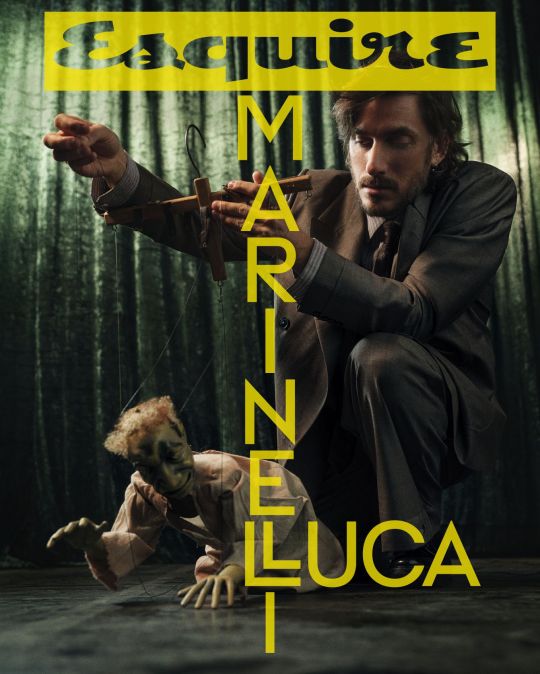



#luca marinelli#paternal leave#m son of the century#m il figlio del secolo#the old guard cast#tog cast#the old guard
170 notes
·
View notes
Text

Luca Marinelli
#<3#luca marinelli#ph: gareth cattermole#m - il figlio del secolo#m. son of the century#toronto film festival#my edit
168 notes
·
View notes
Text









Eurovision Song Contest + Costumes
Laura Thorn's pink and silver & black dresses when performing La poupée monte le son for Luxembourg in the 2025 contest.
// requested by @nb2000
#Eurovision#Eurovision Song Contest#ESC#ESC 2025#Laura Thorn#La poupée monte le son#Luxembourg#costumes#costumesource#2020s#2000s#21st century#pink#silver#black#tw flashing lights#cw flashing lights#cn flashing lights#requests
113 notes
·
View notes
Text

William-Adolphe Bouguereau (1825-1905) "Rest" (1879) Oil on fabric Academicism Located in the Cleveland Museum of Art, Cleveland, Ohio, United States
#paintings#art#artwork#genre painting#genre scene#william adolphe bouguereau#oil on fabric#fine art#academicism#cleveland museum of art#museum#art gallery#french artist#female portrait#portrait of a woman#male portrait#portrait of a boy#child#children#portrait of a child#mother and child#mother and son#mother and baby#clothing#clothes#1870s#late 1800s#late 19th century
196 notes
·
View notes
Text
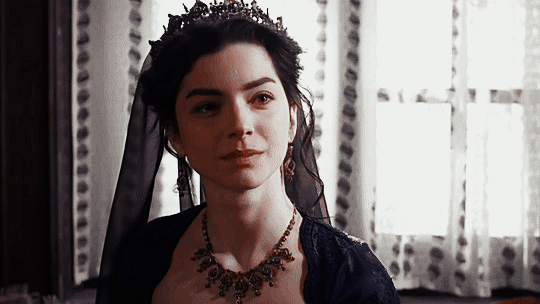

MERVE BOLUĞUR AS NURBANU SULTAN
all goods and evils come from the queen mother
#nurbanu sultan#merve bolugur#magnificent century#muhteşem yüzyıl#perioddramaedit#it's giving I'm so proud of my alcoholic manwife and child soldier son
82 notes
·
View notes
Text

Eton, England 1850s
#eton#eton college#england#1850s#europe#history#vintage#photography#architecture#people#19th century#places#father and son#boarding school#uk#top hat#school#college
98 notes
·
View notes